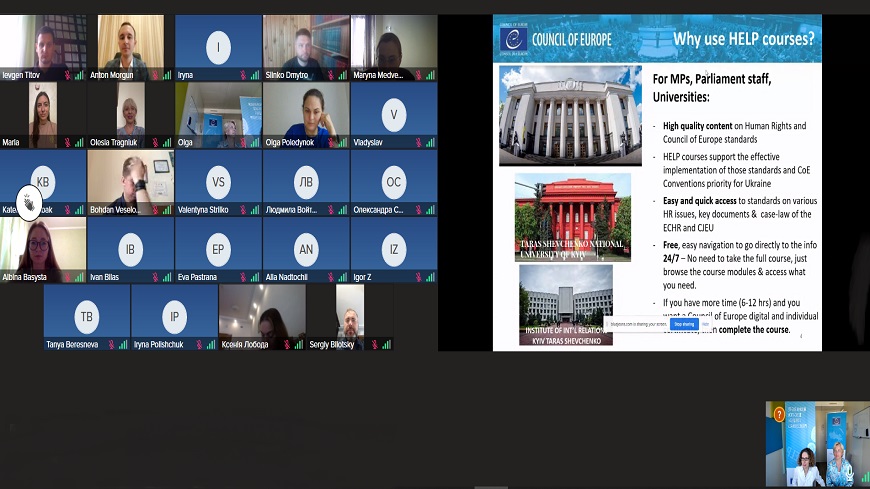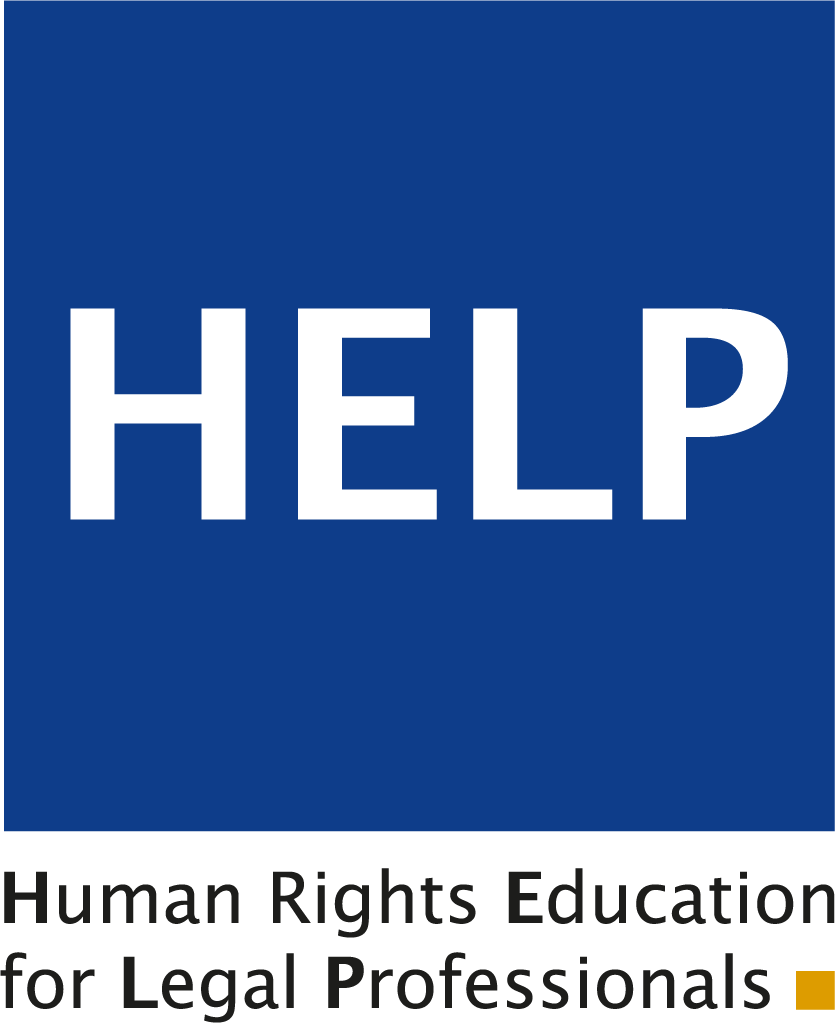On 13 June 2022, on the initiative of the Head of the Ukrainian delegation Ms Mariia Mezentseva, the Council of Europe Human Rights Education for Legal Professionals (HELP) Programme was presented to the members of the Ukrainian Parliament- members of the Ukrainian delegation to the PACE, their parliamentary assistants, representatives of the Secretairat of the Verkhovna Rada of Ukraine (Secretariats of parliamentary factions, Main Scientific and Expert Department, Main Legal Department and Secretariats of Committees) as well as representatives of the main Ukrainian universities: Taras Shevchenko National University of Kyiv, Yaroslav Mudryi National Law University V. N. Karazin Kharkiv National University, Ivan Franko National University of Lviv.
In her presentation Eva Pastrana, Head of Justice and Human Rights Training Division explained how HELP programme can be useful for Ukrainian professionals during the war, paying a special attention to the newly created virtual Asylum/Migration HELP e-Desks , managed by HELP tutors and legal experts to support lawyers assisting refugees from Ukraine in EU neighboring countries Romania, Slovakia, Poland and Moldova. HELP eDesks have also been set up for Bulgaria, Cyprus, France, Germany, Greece and Spain and several others are in preparation (for Belgium, Czechia, Latvia, Lithuania and Slovenia). In parallel, a similar HELP e-Desk for Ukraine has been set up for those still in the country who need legal information on asylum/migration/displacement issues.
In the HELP e-learning platform of the Council of Europe, the following online courses can be taken for free in Ukrainian; with most of them contextualised to the Ukrainian legal framework and case-law. Upon their completion (requiring an average of 6-12 hour of e-learning), enrolled participants can obtain a digital and individualised ‘statement of accomplishment’:
- Internal Displacement
- Admissibility criteria of cases filed to the European Court of Human Rights
- Asylum and Human Rights (developed jointly with NHCR)
- Introduction to the ECHR and ECtHR
- Prohibition of Ill-treatment
- Refugee and migrant children
- Right to liberty and security (Article 5)
- Access to Justice for Women
- Bioethics
- Child-friendly Justice
- Labour rights
- Pre-trial investigation
- Hate speech
- Violence against Women and Domestic Violence
It should be noted that, out of the 5200 Ukrainian users of the HELP e-learning platform, more than 600 have joined the HELP programme during the last three months.





